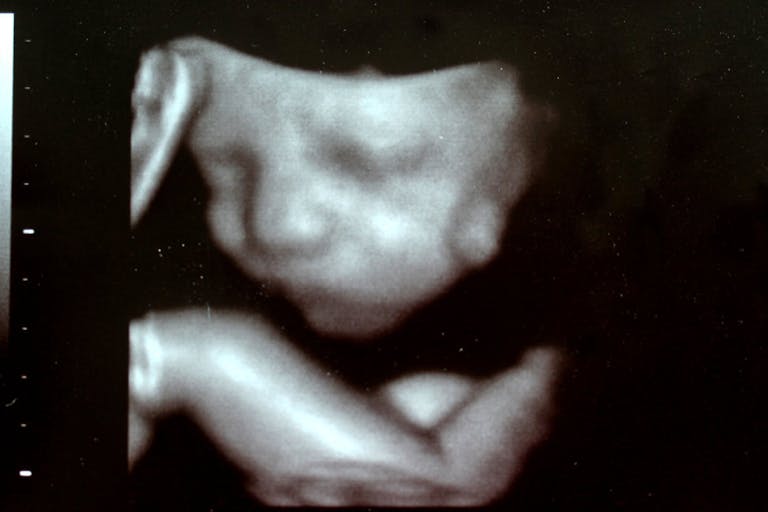
New Archbishop of Canterbury warns of danger in legalizing assisted suicide
Nancy Flanders
·
Couple made surrogate abort their baby at 20 weeks after she had an alcoholic drink
A shocking Daily Mail article exposes just how dehumanizing — and deadly — a surrogacy arrangement can be.
The outlet reported the story of Marty and Melinda Rangers, a couple whose “busy careers” prevented them from having a family — but not from growing wealthy and retiring to the Caribbean. From there, they chose to skip in vitro fertilization (IVF) and go straight for surrogacy, partnering with an agency in California. From the beginning, they treated the process as one in which the surrogate’s’s body belonged entirely to them. And in fact, a surrogacy contract can dictate restrictions on any behavior that the parents choose to restrict. With a surrogacy contract, the mantra of “my body, my choice” is replaced by “my body, their choice,” as the agreed-upon contract and compensation revolve around the parents’ desires for their preborn child. And though abortion advocates often refer derisively to pregnant mothers as “incubators,” in reality, this is what a surrogate is reduced to by the preborn child’s biological parents.
“Drugs and alcohol are strictly forbidden during the pregnancy, as is leaving the country,” the Rangers’ contract stated. “Domestic air travel is only possible with a doctor’s letter. The surrogate also cannot leave the state in the last trimester, and they cannot have a new sex partner without prior approval.”
The surrogate they chose spoke to them twice a week, but Melinda also kept watch over the woman’s social media for any sign that she was violating their lengthy contract. Then one day, they spotted her online, having what appeared to be an alcoholic drink.
“It was all going fine with our surrogate pregnancy until Melinda saw that Instagram,” Marty said. “It was a complete shock for us and when we confronted her about it, she said it was water that she was drinking but there was something about her reaction that left me unconvinced. After much deliberation, we decided the best thing to do would be to terminate our baby at 20 weeks. It was a very tough decision, but the trust had been broken and we were unsure what else this woman was capable of.”
READ: Italy expands prohibition on surrogacy to citizens seeking it abroad
There is no indication that they underwent testing of any kind to see if the baby had been affected by the one drink, nor did they elaborate on what it was that they worried she might be “capable of.” Instead, they merely ordered the surrogate to kill their child in the second trimester, and she complied.
This scenario is almost too horrific and warped to put into words. This couple feared their baby might have been harmed by the alcohol, and apparently feared other bad things might happen to him or her due an ‘untrustworthy’ surrogate, so their “solution” was… to execute the child.
To be clear, this is a vicious, violent procedure. According to their retelling, the surrogate was 20 weeks pregnant, the baby not far from being able to survive outside of the womb. The most common abortion procedure at this point in pregnancy is a dilation and evacuation, or D&E; during this procedure, the abortionist literally rips the baby apart, limb by limb, and then crushes the baby’s skull. And it takes place during a point where the preborn baby very likely can feel pain.

But, Marty said, there’s no reason to fear; the surrogate was “well compensated” for agreeing to undergo the abortion.
The couple then switched to another agency, which cost nearly twice as much, but the Rangers were still not satisfied; the surrogate refused to get a COVID-19 vaccine, and after contracting the virus, had to undergo an emergency c-section early.
The baby was healthy, and the Rangers decided to go on to have yet another baby using a third surrogate — though it is clear the couple’s surrogacy contract became even more strict. “For our second child, we focused on judgment of the surrogate more intensely and we got them to commit more explicitly that they would follow medical advice on pregnancy, be it vaccines, bed rest, diet, or whatever it may be,” Marty said. “The journey for our second child went very smoothly and could not have been more picture perfect of a process.”
Marty described that third and final experience renting another woman’s womb as “like something out of a Disney movie.” Blithely, he added, “She was so happy for us and happy to meet the baby, but she also had the attachment of having raised the baby for nine months.” (emphasis added) Of course, this attachment is a completely normal and healthy thing — but rather unwelcome in a womb-for-hire arrangement.
Surrogacy is known to be big business, as the Rangers well know; they spent over $300,000 to obtain their two born children. Yet it seems that the way surrogacy and its intended separation affects women and the children they carry are considered irrelevant to most involved.
Research has found that surrogates are at higher risk of gestational diabetes, hypertensive disorders of pregnancy, and bleeding complications after birth, while babies born via IVF are at a higher risk for numerous complications. Other studies have found that taking babies from their birth mothers, even if they aren’t biologically related, causes serious trauma.
While adoption exists to heal the wound created when a biological parent cannot care for a child, with surrogacy, the child is created with the intent of removing her from her birth mother.
Both women and children deserve better than to be treated like products to be bought and used by others to achieve their own ends.
Live Action News is pro-life news and commentary from a pro-life perspective.
Contact editor@liveaction.org for questions, corrections, or if you are seeking permission to reprint any Live Action News content.
Guest Articles: To submit a guest article to Live Action News, email editor@liveaction.org with an attached Word document of 800-1000 words. Please also attach any photos relevant to your submission if applicable. If your submission is accepted for publication, you will be notified within three weeks. Guest articles are not compensated (see our Open License Agreement). Thank you for your interest in Live Action News!

Nancy Flanders
·
Analysis
Cassy Cooke
·
Analysis
Nancy Flanders
·
Newsbreak
Angeline Tan
·
Human Interest
Nancy Flanders
·
Issues
Nancy Flanders
·
Analysis
Cassy Cooke
·
Activism
Cassy Cooke
·
Pop Culture
Cassy Cooke
·
International
Cassy Cooke
·
Analysis
Cassy Cooke
·